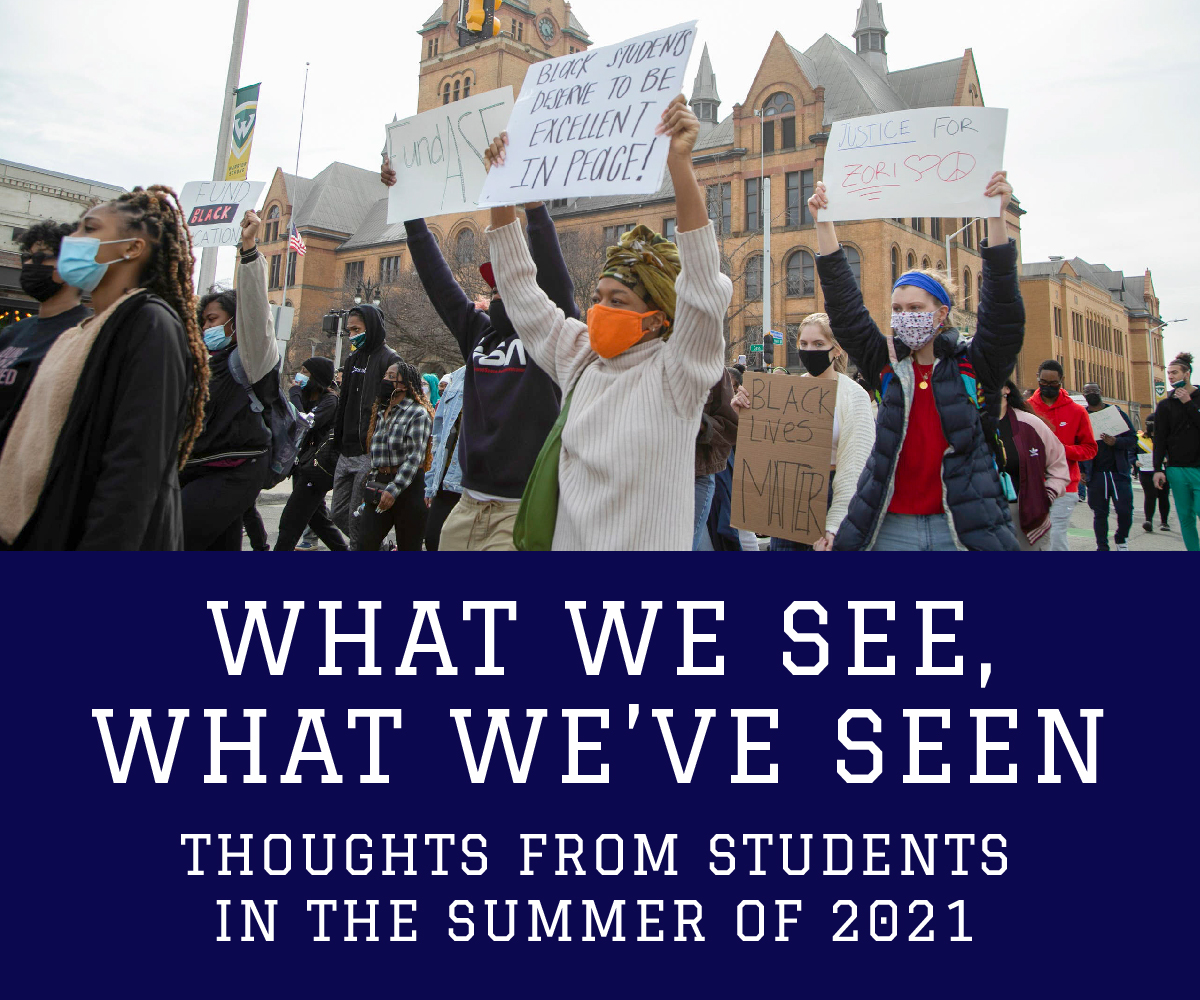
Photo credit: Mandi Wright, Detroit Free Press
by Avery Wickersham
I often think about my future children asking me about the year 2020 after learning about its events in school. I picture them sitting down at the kitchen table, a history textbook splayed out with a worksheet of questions about everything that occurred, especially the pandemic. What happened, Mama? What was it like living in a pandemic? Did you ever get COVID-19?
The COVID-19 pandemic brought a lot of things into my life, though oddly enough, never the virus. I was lucky to never deal with on-campus quarantines, but when I reflect on the past year, I wonder if that would have been easier. Maybe not easier, but definitely different. As an extrovert, I struggled with the distance from the people I loved. As it turns out, it was the easiest way for family and friends to drive a wedge in our relationship, something that I also contributed to. I was, and continue to be, a Colorado native who moved to Iowa for school, and three of my semesters have been marked by COVID-19 in some way. Even as the pandemic evolves, I’m noticing that the effects are lasting.
I was usually more nervous about the COVID-19 virus than others, especially being high risk, and I pushed a lot of people away because of it. A lot of my friends continued to party or put themselves in compromising situations, and I didn’t feel comfortable being around them. I had countless fights with both my mother’s house and my father’s house, as I was forced to come home, about either their careers or activities. At the time, I felt like my family was underestimating the virus, or that they didn’t care about my health. My father and I agreed that his public service job would put me at risk, but there was never an attempt to really connect despite the fact that I had barely seen him since February of 2020. From February to June of 2021, I have seen my father about 15 times. Acting as a catalyst, COVID-19 revealed people’s true nature, and has caused lasting trust issues for the impending future.
While I was grateful to be on-campus for the fall semester of 2020, especially dealing with the frustrating relationship with my father, COVID-19 continued to spoil relationships—this time, stretching to a former friend and roommate. Our apartment was a tense place to be, divided three-to-one. By November 2020, we were all shut in our rooms, pressing our ears to the door and creeping around corners to avoid seeing anyone. In addition, we were all trying to understand our own worlds, both on a small scale as we finished out the semester, and on a large scale, with the election.
Working on the school newspaper helped me understand more of the division, not only on campus, but in the world. Our office was thankfully open, provided we wore masks, and many of us were able to talk about our own beliefs. For the most part, it was good-natured and informative. But, it was hard to read through some articles, despite our attempt to read them with an unbiased approach. Some authors believed in the idea that masks didn’t work, that the virus wasn’t as serious as the media proclaimed, and other articles that had to be addressed with links to facts by usually unbiased news sources, such as the CDC’s website. It was a hard email to send to our writers. We constantly questioned, Where’s the line?
When the vaccine became available, I was surprised to see who got it and who refused it. I was in section 1B, so I received my first shot in February. Many of my friends received theirs in waves, even as late as May. I don’t know any friends who haven’t received theirs, but I know plenty of family who haven’t. My father’s side of the family, from what I know, hasn’t received the vaccine. Until they do, I feel uncomfortable associating with them for fear of catching the virus. I still don’t know what COVID-19 will do to me, even with the vaccine, and I will continue to encourage people to wear their masks if they’re not vaccinated to keep others safe.
This world lacks compassion, from family and friend issues, to the nation-wide divide that separates our country, even after the election. A political party shouldn’t stand in the way of treating people kindly: no matter race, gender, sexual orientation, religion, and so on. If there’s anything to learn from the last year, it’s that we must think about others, have an open mind, and really listen. These are the first few steps to changing our world. Until we pull away from idolizing leaders of the country (in both political parties) and come together, we will remain united and frustrated. Take a moment to think about your friends and family. Fighting with them over ideologies will only drive a wedge in the relationship and lead to a serious disconnection. With the short time we’re allowed in this world, it’s time to learn to keep loved ones close, despite our differences.

